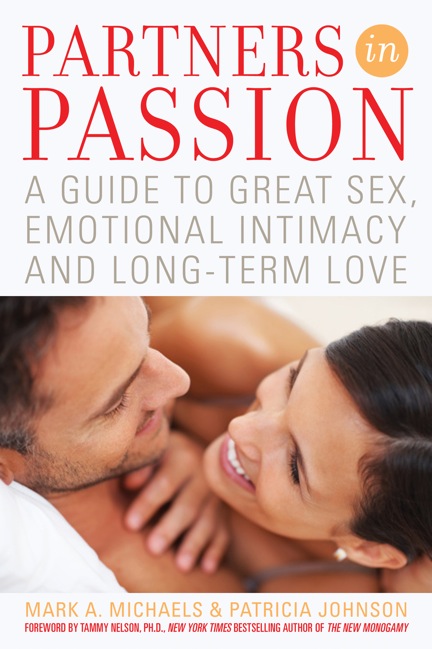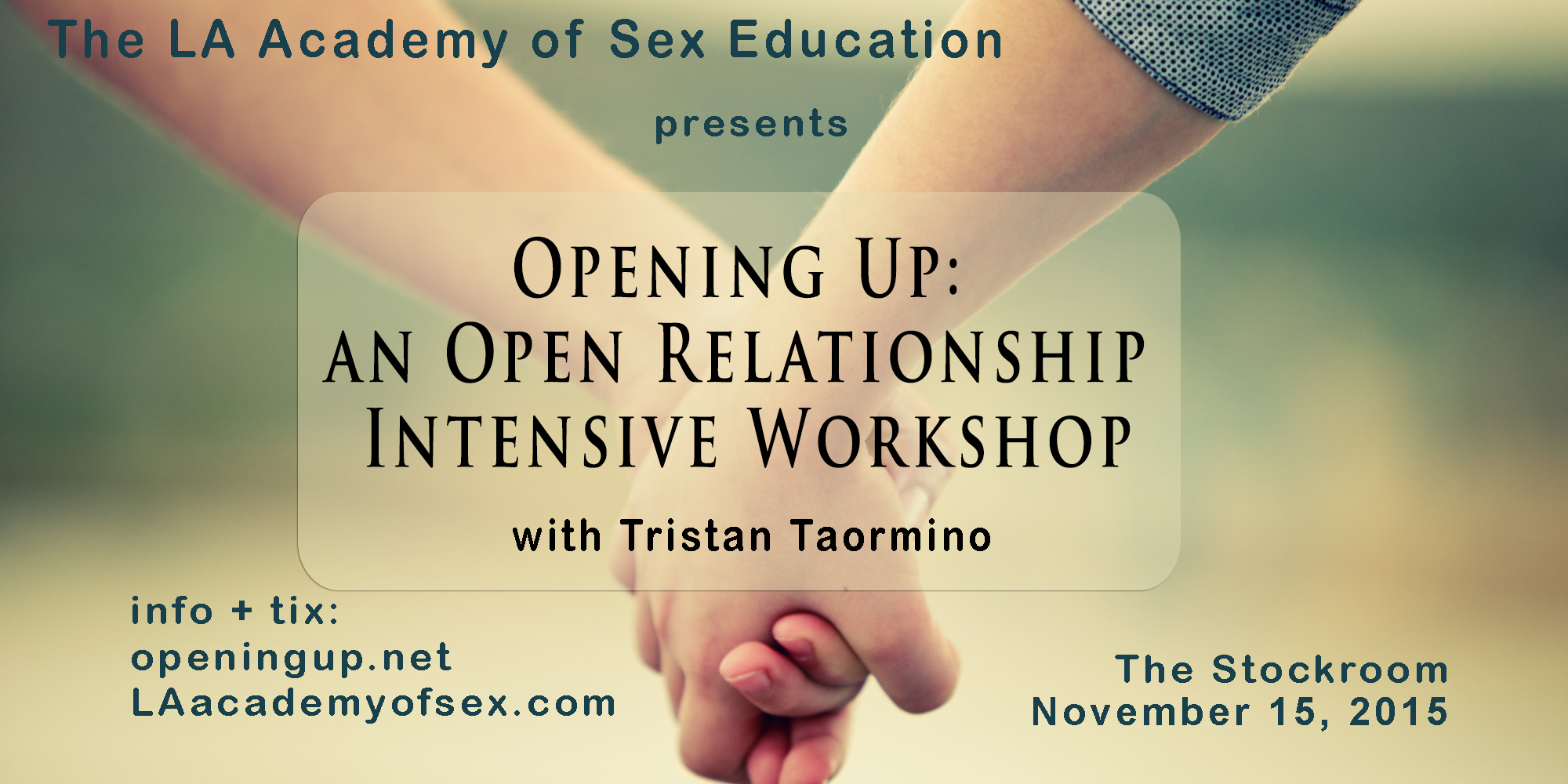
Ed. Note: I’m excited to present this guest post by Mark A. Michaels and Patricia Johnson, authors of the new book, Partners in Passion.
Articles bemoaning the state of marital sex seem to emerge in clusters, often in the run-up to Valentine’s Day. This year, The New York Times helped lead the charge with the publication of two articles on successive Sundays.
The first, “Good Enough? That’s Great!” by Daniel Jones, editor of the “Modern Love” column, appeared on February 2nd and was excerpted from his recently published Love Illuminated. Jones characterized couples that seek to maintain or renew their erotic connection as “Restorers” whose approach to relating is based on either “drudgery” or a need for “spice.” He concluded that it is “risky” for couples to do more than settle for staleness and that the prudent course is to be “appreciatively resigned.” This conclusion neglects the very real possibility that those who choose to be interested in each other, to be curious and engaged are not seeking to recapture something that has been lost but are instead cultivating relationships skills that others would benefit from learning. Being “appreciatively resigned” is no sign of wisdom, and remaining emotionally and erotically engaged need not be either “drudgery” or “spice”; it can be a shared adventure.
Jones discussed the outcry over Ayelet Waldman’s 2005 statement that putting her “marriage ahead of motherhood” was the key to her marital happiness and erotic satisfaction. In his characterization, Waldman is akin to an alien being and her marriage is “extremely rare”, though letters he received during his years as editor of “Modern Love” hardly comprise a scientific sample. It would have been more illuminating to examine the sources of the outrage – America’s almost cultish devotion to the child; the still pervasive sexist and sex negative currents in our society; and the notion that love is a zero-sum game.
Jones’s piece was followed by a cover story in the February 9, 2014 Magazine by psychotherapist Lori Gottlieb – titled “Sexless but Equal” on the cover and “The Egalitarian-Marriage Conundrum” inside. In the article, Gottlieb cited a study published in 2013 claiming that couples in “equal marriages”, where husbands do “what researchers characterize as feminine chores like folding laundry, cooking, or vacuuming” had sex 1.5 fewer times per month than couples whose division of labor was more conventionally gendered. While Gottlieb acknowledged several potential flaws in the study, she relied on anecdotes from her personal life and practice to bolster the idea that relatively equal partnerships are likely to suffer from erotic deficit.
Gottlieb’s article was replete with essentialist ideas about gender – for example that men watch Pornohub and women follow Pinterest. Her thinking about pornography generally was antiquated or naive – that it’s all about male pleasure, women being subservient, with no negotiation, female desire or role reversal (the proliferation of feminist porn notwithstanding), and that the “MILF” is a new cultural phenomenon. Some of the biggest porn stars of the1970s were middle-aged, even though the term had not yet been invented.
The anecdotes from her practice were similarly superficial. In one case, a woman in her 40s and in an “equal” marriage examined her husband’s Internet history and discovered that he had viewed porn involving scenes of domination. The discovery inspired her to express her own desire to be dominated; a fantasy the couple explored. The woman was “surprised by his lack of enthusiasm” and felt rejected as a result. Gottlieb never mentioned the apparent invasion of privacy and how that violation may have impacted the interaction. Also unexamined were some potentially deeper issues, how the woman communicated her desire, whether it was received as a criticism, and perhaps more importantly why the husband was unable to take pleasure fulfilling his wife’s fantasy. There’s no intrinsic reason that acting out fantasies of domination in the bedroom will have any implications in other aspects of life.
 In another anecdote, one of Gottlieb’s clients claimed to “crave” her husband when he returned from the gym, undressed, and got into the shower. The husband replied that he had done just that on the morning of the session, and she became irritated because he had thrown his clothes on the floor and then complained that he had failed to vacuum “the day before, when she had to work late.” The conversation then turned to the fact that the wife did not find vacuuming a turn-on.
In another anecdote, one of Gottlieb’s clients claimed to “crave” her husband when he returned from the gym, undressed, and got into the shower. The husband replied that he had done just that on the morning of the session, and she became irritated because he had thrown his clothes on the floor and then complained that he had failed to vacuum “the day before, when she had to work late.” The conversation then turned to the fact that the wife did not find vacuuming a turn-on.
Gottlieb either ignored or missed the fact that the woman shifted her attention from her desire to her resentment. It’s by no means self-evident that the dynamic has anything to do with gender-neutrality or egalitarianism or that her response would have been any different if the task involved had been one that is conventionally deemed to be masculine – taking out the trash or fixing the car. In this incident, resentment, not gender equality, killed desire.
These articles partake of a generalized cultural anxiety about marriage and long-term relationships that is not entirely misplaced. The work of Esther Perel, which is cited in both articles, highlights the tension that between the domestic and the erotic. 21st-century society imposes a very heavy burden on long-term relationships; partners are expected to be lovers, friends, and parents, and it is not easy to balance these demands, especially when work and other obligations are factored in. Nonetheless, examples of couples successfully navigating these conflicts are not that difficult to find.
Perhaps it’s sexier to focus on dissatisfaction and lack of sex. Perhaps it is safer as well. Long-term couples that have satisfying sex make relationship a priority. They may explore various forms of open relating or kink, which are typically downplayed or ignored in the ‘marriage in crisis’ genre, or they may be vanilla and monogamous. What these couples have in common is a dedication to maintaining their erotic connection. The reaction to Ayelet Waldman’s statements makes it clear that making the erotic a priority remains a radical act, especially if the person prioritizing is a woman and a mother.
Mark A. Michaels and Patricia Johnson are a devoted married couple. They have been creative collaborators – teaching and writing about sexuality and Tantra together – since 1999. Michaels and Johnson are the authors of Partners in Passion (Cleis 2014), Great Sex Made Simple, Tantra for Erotic Empowerment, and The Essence of Tantric Sexuality. Their books have garnered numerous awards: Independent Publishing (IPPY), ForeWord Reviews, and USA Book News Best Books, among others. They are also the creators of the meditation CD set Ananda Nidra: Blissful Sleep. To support the pleasure-positive community in New York, they co-founded Pleasure Salon in 2007. www.MichaelsandJohnson




 In another anecdote, one of Gottlieb’s clients claimed to “crave” her husband when he returned from the gym, undressed, and got into the shower. The husband replied that he had done just that on the morning of the session, and she became irritated because he had thrown his clothes on the floor and then complained that he had failed to vacuum “the day before, when she had to work late.” The conversation then turned to the fact that the wife did not find vacuuming a turn-on.
In another anecdote, one of Gottlieb’s clients claimed to “crave” her husband when he returned from the gym, undressed, and got into the shower. The husband replied that he had done just that on the morning of the session, and she became irritated because he had thrown his clothes on the floor and then complained that he had failed to vacuum “the day before, when she had to work late.” The conversation then turned to the fact that the wife did not find vacuuming a turn-on.